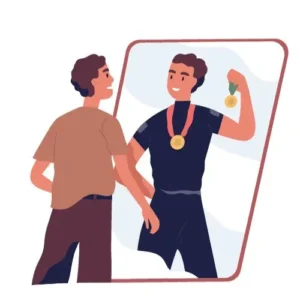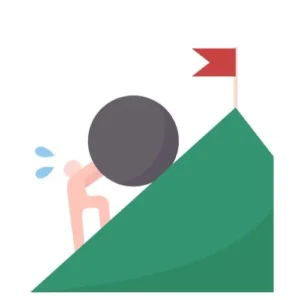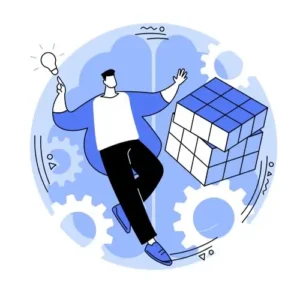Introduction
Feeling like you lack any real talents or skills can be disheartening. But the truth is that anyone can identify and develop areas where they excel with self-reflection, trying new things, and purposeful practice. By taking an inventory of your abilities, focusing on growth over speed, and learning how you work best, you can overcome the belief that you’re not good at anything.
Key Reasons People Feel They Aren’t Good at Anything
| Reason | How to Address It |
|---|---|
| Comparing yourself to others | Focus on self-improvement rather than competition with others. |
| Lack of exposure to new skills | Try new hobbies, classes, and activities to uncover hidden talents. |
| Giving up too early | Allow time to develop competency and embrace the growth process. |
| Overemphasis on innate talent | Remember, skills are largely developed through practice over time. |
| Fear of failure or imperfection | Let go of perfectionism, focus on progress, and view failures as learning. |
The path to uncovering your strengths starts with reflecting on the root causes of why you feel you come up short. Then, purposeful strategies can help you discover and nourish your talents.
Reflect on What’s Holding You Back

To start cultivating your abilities, reflect honestly on what might be causing you to believe you aren’t good at anything:
Comparisons
It’s easy to measure yourself against more skilled peers and conclude you lack talent. But skills develop at different rates for everyone, and competition breeds discouragement. Focus on self-improvement for its own sake rather than comparing yourself. Find role models that inspire rather than discourage you.
Limited Exposure
It’s hard to know what you’re good at if you haven’t tried different activities. Many people are late bloomers who don’t discover their passion and abilities until adulthood. Make a point of exploration – try hobbies, classes, clubs, and meetup groups that provide exposure to new skills.
Giving Up Too Fast
People often give up on developing a new skill when they don’t master it quickly. But competency takes time, especially if it’s outside your comfort zone. Allow yourself to be a beginner. Stick with something for at least 6 months before concluding whether it’s a fit.
Overvaluing Innate Talent
There’s a myth that experts are just “born good” at what they do. However, research shows skills are built through committed practice over the years. Believing anyone can get good with time and effort is empowering. Greatness often comes from perseverance.
Perfectionism
Many people avoid trying new things or giving up too soon because they fear failure or not being the best. However, failure is how we learn; no one starts as an expert. Let go of perfectionism, embrace being a novice, and focus on growth over speed.
By identifying the root causes of feeling inadequate, you can adopt strategies and thought patterns that enable you to recognize and develop your strengths.
Take a Personal Skills Inventory

To discover your hidden talents, try taking stock of your various skills and attributes:
- What subjects did you excel at in school? What did you learn quickly or find interesting?
- What hobbies or activities come easily or naturally to you?
- What skills do friends or family say you have (cooking, creativity, empathy, etc)?
- What tasks do you do that earn praise from others?
- What abilities from jobs, volunteering, clubs, or training might apply more broadly?
- What skills come so naturally you take them for granted?
- What positive qualities do you see in yourself?
Uncovering your strengths starts with an honest self-assessment. Make a list of everything you currently or potentially do well, no matter how small. This provides clues for where to focus.
Try New Things to Uncover Hidden Talents

Stepping outside your comfort zone exposes you to new activities that can uncover hidden talents. Some ideas:
- Take classes in creative hobbies like photography, pottery, or painting
- Learn practical skills like carpentry, electrical work, or gardening
- Try sports that test different abilities like tennis, rock climbing, or kayaking
- Learn music fundamentals and an instrument like a guitar or piano
- Study a foreign language to challenge your mind in new ways
- Volunteer to contribute your time and gain new experiences
- Attend meetups on topics you’re curious about exploring
- Sign up for a local recreational sports team to build athleticism
- Take personality tests to learn more about your inherent strengths
You never know what latent talents you’ll uncover until you broaden your horizons. Commit to try new things that spark your interest regularly actively.
Focus on Growth Over Speed
Focus on incremental growth rather than expecting immediate perfection when taking on a new skill. Break challenges into smaller milestones to demonstrate progress. Even small daily improvements compound over time into mastery.
Remember that even elite experts were novices once. Allow yourself to be a beginner, embrace imperfect progress, and celebrate small wins. The journey of lifelong learning is rewarding in itself.
The tortoise mindset of steady improvement beats the hare mindset of chasing overnight success. Progress builds confidence and motivation to continue practicing.
Learn in the Way That Suits You Best

Reflect on how you learn best:
- Visual learners absorb more from images, videos, and demonstrations.
- Auditory learners understand better through lectures, discussion, and verbal instructions.
- Kinesthetic learners prefer a hands-on experiential approach.
- Independent learners thrive through self-study, while collaborative learners benefit from teamwork.
Play to your learning style strengths. If one approach isn’t working, try alternatives like reading vs. listening, individual vs. group work, and tactile experience vs. observation.
Use learning aids like diagrams, applications, and mentorship to maximize your comprehension. Understanding how you learn most effectively can accelerate skill development.
Be Patient and Persevere Through Plateaus

Every single thing humans learn has plateaued. They are soul-crushing and demoralizing, but again, a plateau is just any part of the journey.
As we remain patient with our decay periods, new growth will soon blossom. Patience is the key to shattering your glass ceiling.
If you’re stuck, reevaluate. You can ask others for feedback, adjust your practice strategies, and introduce new things or ideas from other books/videos/ experiences in the same category. Doing something different will help propel you to the next stage.
Prioritize Consistent Practice Over Intensity
This means you need to regularly devote small amounts of time to practicing Trump cramming, with long-form practice occasionally as well. This is a short daily practice that will help the skills sink in.
It is the same for playing an instrument like a guitar; 15 minutes, day in and out kills one multi-hour session once in two months. Try to work in some no-pressure practice every day.
Work on consistency, not hitting it hard. Practice regularly in small chunks, with some deep dives but not too many, so you can build your skills fast and avoid burnout.
Join a Community to Accelerate Growth
Connecting with others pursuing similar interests provides inspiration, accountability, and mentorship. In-person and online communities help. Partnering with like-minded people fuels inspiration, holds us accountable, and provides a support system. In-person & online communities — to turbocharge learning and real application of the progress through
- Introductory tutorials and mentorship from experienced pros
- Peer-level motivation and advice
- Practice and feedback opportunities
- New Strategies and Inspirations
SupportNetworks → Rich Resources which Amplifies Practices Done Individually.
Keep an Open Mind as Interests Evolve

Interests will change over time, so be sure your abilities evolve with what you enjoy now and not necessarily the interests of your past. When something is no longer beneficial or aligned with you, then change it.
So ask yourself frequently: Is that fire still burning brightly, or do you need to learn new things or expand on it? Let your passion lead you where it may.
Change saves you from expending energy on learning something that will eventually cease to please. Your powers are meant to be forces for good and a vehicle by which you come in closer touch with the life well-lived.
Be Patient and Celebrate Small Wins
Recycling skills will require time and patience with oneself—progress over perfection. There is nothing better than a beginner believing in the process.
Get out of your comfort zone and keep trying new things, make time to practice deliberately. Recognize & Celebrate Milestones on Your Path
The way to get there is by constantly stroking over time and self-love. What small action step can you do today?
Conclusion
But that would be self-defeating and did not have to become your character. You can begin to change that by Dismantling comparisons, lack of exposure (or diversity), only trying once and quitting too soon, and the notion you are no good at anything is fed… our belief in “innate” talent and perfectionism. Evaluating skills for yourself and trying a hand at things you have never tried before can help uncover hidden talents. We need to focus on growth, not velocity. It’s a learning path, and the only thing one should do is enjoy it.
Empower Your Learning Style; Plateaus Suck Regular practicing small amounts is often more important than occasional marathons of practice. Become surrounded by like minds on your journey to expedite growth and encouragement. Last, let yourself be curious about your evolving interests and pat yourself on the back for those little wins.
Read Also: Positive Affirmations For Social Anxiety

